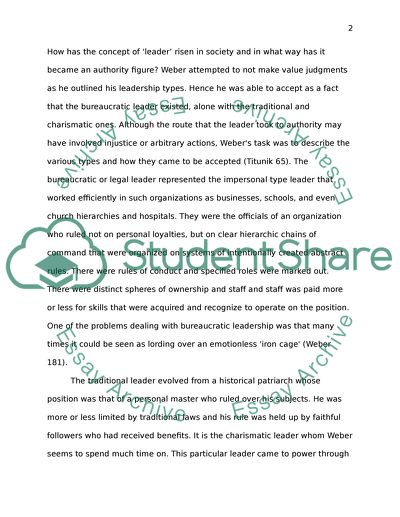Cite this document
(“What does Weber mean by charismatic authority How and why does he Essay”, n.d.)
Retrieved from https://studentshare.org/environmental-studies/1416896-what-does-weber-mean-by-charismatic-authority-how
Retrieved from https://studentshare.org/environmental-studies/1416896-what-does-weber-mean-by-charismatic-authority-how
(What Does Weber Mean by Charismatic Authority How and Why Does He Essay)
https://studentshare.org/environmental-studies/1416896-what-does-weber-mean-by-charismatic-authority-how.
https://studentshare.org/environmental-studies/1416896-what-does-weber-mean-by-charismatic-authority-how.
“What Does Weber Mean by Charismatic Authority How and Why Does He Essay”, n.d. https://studentshare.org/environmental-studies/1416896-what-does-weber-mean-by-charismatic-authority-how.


